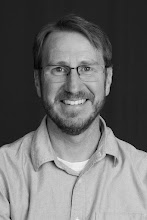When I first started out in pastoral ministry the church growth movement was in full swing. Business models of congregational leadership were in vogue and I, along with others, flocked to conferences to hear megachurch pastors pontificate about how to grow a church. Today, many of those big churches led by larger than life pastors have been plagued by scandals and run into substantial problems. Mars Hill is one example.
If you want a good analysis of a grow-at-all-costs ministry model, and the problems arising from that mentality, The Rise and Fall of Mars Hill is worth a listen. Parts of it are good fodder for a pastoral theology course. Invite students to consider Driscoll's pastoral theology alongside others such as Eugene Peterson, Will Willimon, and Dietrich Bonhoeffer. The contrast could not be starker.
The full Podcast is available here. Below is a teaser to get you started.






